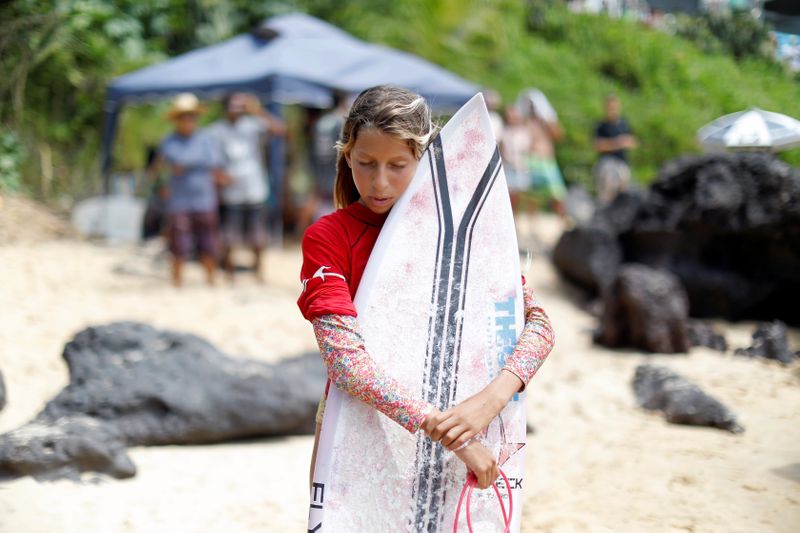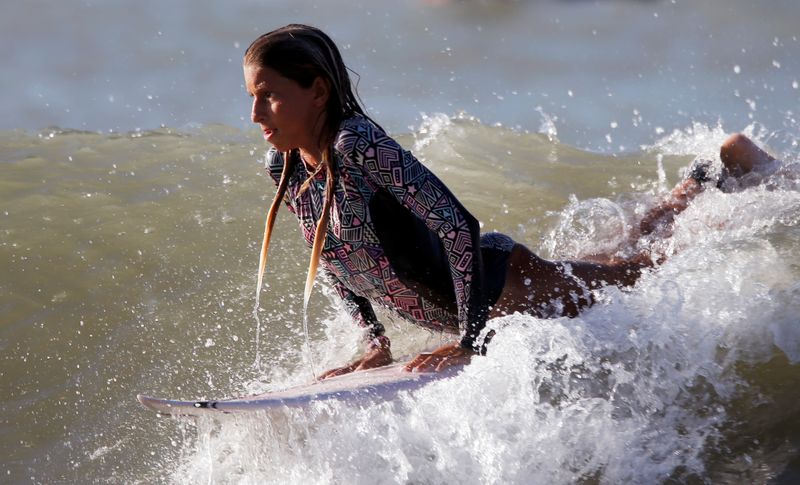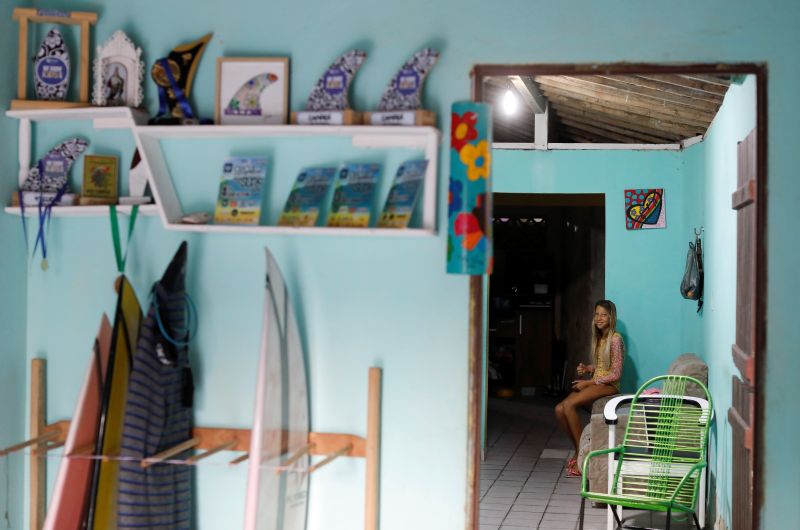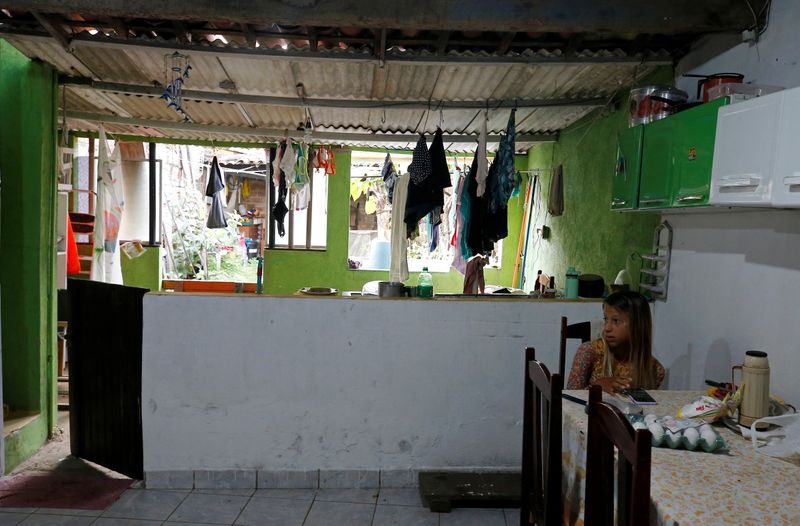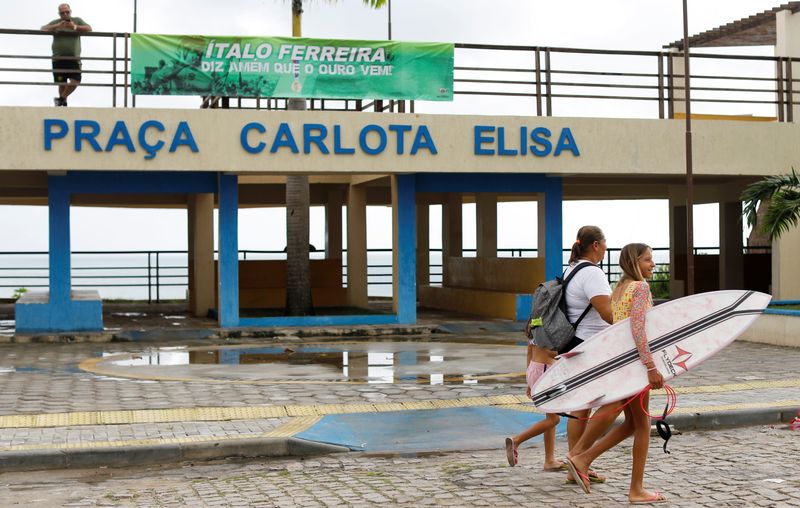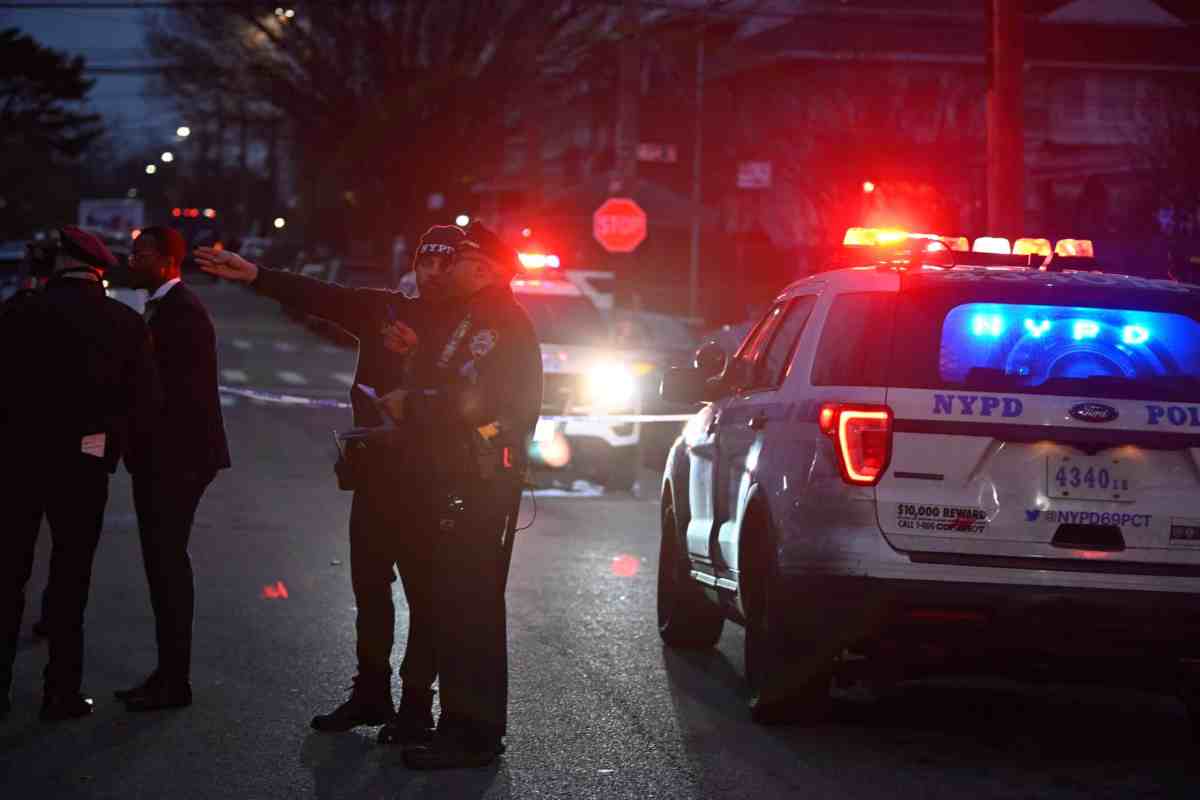BAIA FORMOSA, Brazil (Reuters) – Brazil’s Italo Ferreira won surfing’s first ever Olympic gold in Tokyo, and if the reaction in his home town is anything to go by it won’t be the last for one of the world’s top surf nations, where many are at home on the waves.
Young surfers in Baia Formosa, a small seaside resort on the unspoilt northeastern coast, have long been inspired by the new Olympic champion, and his medal given the sport added respectability.
“It was very interesting to see how Italo’s medal is breathing all this new life into surfing and inspiring the new generations that are appearing,” said Daniel Grubba, an agent who manages surfers for the One Sports Agency.
Grubba was in Baia Formosa last week in search of talented young surfers to sign up and one of them was Maria Clara Dornelas, a local 12-year old.
“I’ve been inspired by him (Ferreira) many times, when I’m competing in a championship I remember him and do more or less what he did,” Maria Clara said after winning the Maresia Pro, a national competition in which surfed against rivals twice her age.
“The joy of taking a medal to your home town must be incredible and even more so a gold medal!”
Although the beaches around Baia Formosa often boast ideal waves, the charge to the beach is not new in Brazil, a country with 7,491 km (4,655 miles) of coastline.
The top three surfers in the men’s World Surf League rankings are all Brazilian and one of the top five women is too.
Another woman, Maya Gabeira of Rio de Janeiro, last year broke the world record for surfing the biggest wave, a 22.4 m (73-1/2 ft) wall of water off the Portuguese coast.
However, Olympic inclusion and success has given the sport a huge boost.
“It’s really cool to be able to inspire other people, not only kids (who surf), but also other people who have other dreams, who don’t live directly from the sport but who have big dreams and who are trying to achieve something,” Ferreira said this week, shortly after returning from Japan.
“And for them to have my story as an inspiration and a motivation, that’s very gratifying!”
(Reporting by Leonardo Benassatto in Baia Formosa; writing by Andrew Downie; editing by John Stonestreet)

